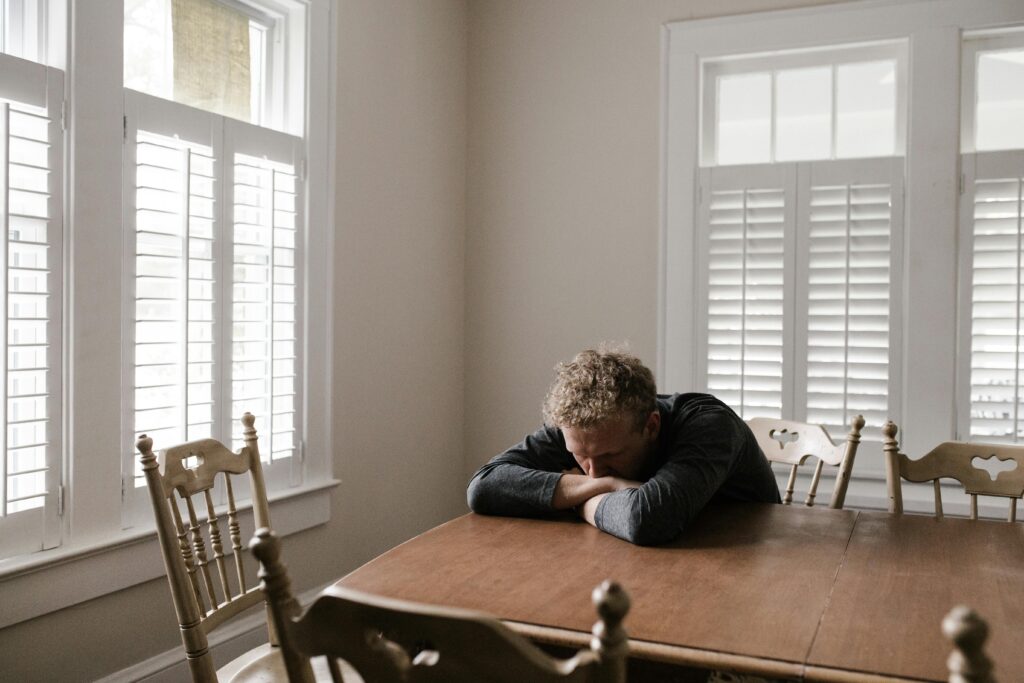
Bipolar disorder is a multifaceted mental health condition marked by dramatic shifts in mood, energy, and behavior. Individuals with this disorder experience alternating periods of elevated mood—referred to as mania or hypomania—and deep depression. These mood changes can significantly disrupt daily activities and overall quality of life.
At Willow Springs Healing Center, we are committed to delivering compassionate, effective care for those affected by bipolar disorder. Our mission is to support each client in managing their symptoms and building a more balanced and fulfilling life.
Bipolar disorder presents in several forms, each with its own unique pattern of mood fluctuations:
Recognizing the various manifestations of bipolar disorder is crucial for accurate diagnosis and tailored treatment planning. Effective management often involves a comprehensive strategy—incorporating medication, therapy, and lifestyle changes—to promote emotional stability and improve long-term outcomes.

Bipolar disorder goes well beyond ordinary mood swings. It can affect nearly every aspect of an individual’s life—disrupting emotional balance, physical health, social relationships, and daily routines. The rapid transitions between manic highs and depressive lows can derail personal stability, strain relationships, affect employment, and interfere with basic self-care.
By exploring the condition through physical, emotional, and social lenses, we gain deeper insight into the challenges individuals face and the types of support that promote long-term recovery and well-being.
Although bipolar disorder is primarily recognized as a psychiatric condition, its physical toll is significant. Sleep disruption is among the most frequent issues. During manic phases, people often sleep very little yet feel unusually energetic—only to experience eventual exhaustion. Conversely, depressive episodes may bring excessive sleep or insomnia, both of which can aggravate emotional symptoms and drain vitality.
These sleep irregularities can disrupt the body’s natural rhythms, contributing to continued emotional instability. Additionally, individuals with bipolar disorder are more prone to physical health conditions such as heart disease, obesity, and diabetes. These risks are often linked to unhealthy habits that arise during mood episodes—like overeating, lack of exercise, or substance misuse.
Chronic stress is another factor that can trigger physical complications, including inflammation, headaches, and digestive issues. Moreover, treatments like mood stabilizers and antipsychotic medications can cause side effects such as weight gain, tremors, and metabolic challenges. These realities underscore the importance of integrated care that supports both mental and physical health.
Bipolar disorder significantly shapes how a person experiences and responds to their emotions. Manic episodes may bring heightened energy, irritability, impulsiveness, and unrealistic confidence. These emotional surges often lead to reckless decisions, strained relationships, and impaired judgment.
During depressive periods, individuals may feel overwhelmed by sadness, hopelessness, guilt, or low self-worth. These emotional lows can make it difficult to complete even the simplest tasks and may be accompanied by suicidal thoughts, highlighting the urgent need for timely, compassionate care.
Cognitive functions are frequently affected as well. Many people with bipolar disorder struggle with memory, focus, and decision-making. These challenges can undermine confidence and create a sense of disconnection from one’s usual self. Fortunately, with appropriate treatment—including medication and therapy—these symptoms can be managed, and cognitive functioning can improve.
Bipolar disorder often has a profound effect on social life. During manic states, behaviors like excessive talking, interrupting, or impulsive spending can disrupt relationships and alienate friends, family, or coworkers.
On the flip side, depressive episodes may lead individuals to withdraw from social contact. Feelings of isolation, shame, or being misunderstood can weaken support systems and deepen emotional distress.
Fluctuating moods also take a toll on work or academic performance, often leading to missed deadlines, reduced productivity, and difficulties maintaining consistent roles—potentially resulting in job loss or academic struggles.
The stigma surrounding mental health conditions can further compound these issues, making it harder for individuals to seek help. However, through therapy, peer support, and open dialogue with trusted individuals, those living with bipolar disorder can build stronger connections and foster a more stable, fulfilling social life.

Bipolar disorder manifests in diverse ways, affecting far more than just mood. It can influence physical health, behavior, and cognitive abilities. Early identification of its symptoms is essential for effective treatment and long-term emotional stability. Below is an overview of the most common physical, behavioral, and psychological indicators associated with this condition.
While classified as a mental illness, bipolar disorder often brings visible physical changes, particularly during manic or depressive episodes. These symptoms can impact a person’s sleep patterns, energy levels, and general physical well-being. Common physical signs include:
Behavioral shifts are often the most noticeable aspects of bipolar disorder. These behaviors tend to mirror the highs of mania and the lows of depression, frequently interfering with relationships, responsibilities, and sound judgment. Common behavioral signs include:
The emotional and cognitive effects of bipolar disorder can be especially disruptive. Individuals often experience dramatic mood swings, shifting thought patterns, and changes in self-perception. These symptoms can lead to profound emotional distress and functional challenges. Common psychological signs include:

Bipolar disorder is a chronic mental health condition that requires ongoing care and a multi-faceted treatment plan to manage mood fluctuations and maintain emotional balance. While there is no permanent cure, individuals can lead fulfilling and stable lives through personalized treatment strategies. Effective management typically involves a combination of medication, therapy, healthy habits, and strong social support—all aimed at reducing symptoms and enhancing overall well-being.
Psychotherapy is a key component in the treatment of bipolar disorder, offering a safe, supportive space to build coping mechanisms, process emotions, and reshape thought patterns.
Medication often plays a central role in bipolar disorder treatment, helping to balance mood and reduce the severity and frequency of episodes. Because each individual responds differently, finding the right medication regimen may require time, adjustments, and close monitoring by a healthcare provider.
Ongoing collaboration with a psychiatrist is essential for monitoring progress, addressing side effects, and adjusting treatment as needed.
Day-to-day routines have a significant impact on emotional health. Implementing lifestyle changes can enhance treatment outcomes and reduce the likelihood of future episodes.
These healthy habits serve as a strong foundation for long-term stability and self-empowerment.
Emotional and social support is a powerful factor in managing bipolar disorder. Encouragement from others can provide comfort, reduce isolation, and foster resilience.
During intense manic or depressive episodes, crisis support may be necessary. Hospitalization can provide a safe, structured setting to stabilize symptoms and prevent harm, particularly when suicidal thoughts or dangerous behaviors arise.
In urgent situations, 24/7 crisis hotlines and emergency mental health services are available to offer immediate care and connect individuals to life-saving support.

If you or someone you love is facing the challenges of bipolar disorder, know that you don’t have to go through it alone. At Willow Springs Healing Center, we offer compassionate, expert care through flexible outpatient programs at our Concord, MA location.
Our center is open 24/7, providing accessible support whenever you’re ready. Our treatment approach is designed to fit into your life—helping you heal while continuing to meet work, school, or family responsibilities. We focus not only on therapy but also on empowering clients to integrate recovery strategies into their everyday routines.
Don’t wait. Your journey to healing and lasting change can begin today. Contact us: